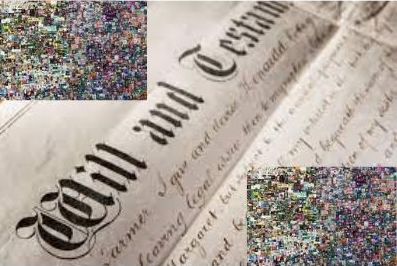Leaving an NFT in a Will. What to do with the Password. Sample Will Provisions. Tax Implications.

NFTs are valuable assets, and it is wise to include them in your estate planning documents such as a will or trust. The last thing you want is for ownership of your NFT to disappear with your death. You want your loved ones or a charity to enjoy the NFT after your death or to be able to sell it and keep the proceeds or buy something else they like.
Not a good idea to write your NFT passwords in the will itself
NFTs can only be accessed by a passkey. If you die without anyone knowing how to access your NFTs with a passkey, your NFT will be lost forever. But putting the password in the will itself is a bad idea. Your will, once probated, becomes a public record. As a public record, anyone can have access and read it. If you write your passwords in the will, anyone can access your account and steal your NFT. For this reason, most estate planning attorneys advise to simply list your digital assets, i.e., NFTs, in your will, but to store the memorandum containing all the passwords to your digital assets in a separate private file.
If you do not mention your NFT in the will, the NFT will be part of your remainder assets which will be given to the remainder beneficiary/ies. However, if your executor or these beneficiaries do not even know of the existence of your crypto or NFT, there is little chance for them to access these accounts and your digital assets may be lost forever.
Storing your passwords can be as simple as storing them in a password-protected file in your Dropbox or other cloud storage or in a password storage program. Alternatively, you can write a memorandum as part of your estate planning documents which would include a list of your digital assets, i.e., cryptocurrencies, NFTs, etc., and how to access it and store in a bank safety deposit box. You can then state in your will that a particular bank safety deposit box contains the information required to access your digital assets, such as NFTs, and leave the contents of the bank safety deposit box to a particular beneficiary.
Sample NFT provision in a will
An estate planning attorney may include a provision in your will that disposes of your NFT. A sample provision may look like this:
I leave and bequeath my (cryptocurrency, NFT, digital asset or anything found in my cryptocurrency wallets) to (insert name of beneficiary).
My digital assets are stored in (insert name of cryptocurrency wallets). These items are to be distributed to (beneficiary name).
I have created a separate memorandum from this will that explains how to access my cryptocurrency wallets and online cryptocurrency accounts. This memorandum contains passwords, PINs, and private keys needed to access my cryptocurrency accounts and is safely stored in (bank safety deposit box or other location).
Estate tax liability for NFTs you leave in a will
When you leave NFTs and other digital assets in your will, this will be included as part of your gross estate in determining the computation and payment of estate taxes. When leaving NFTs in a will, it’s a good idea to include your acquisition cost in the crypto memorandum that you plan to leave to your designated executor and/or beneficiary so that the cost basis is recorded and income can easily be determined.
NFTs in estate planning are a relatively new and emerging area of law, since NFTs only became popular sometime in 2021. If you would like to leave NFTs in your will or in a trust, it is important to consult with a technologically savvy lawyer who can understand your needs. Should you need assistance, we at the Law Offices of Albert Goodwin are here for you. We have offices in New York City, Brooklyn, NY and Queens, NY. You can call us at 212-233-1233 or send us an email at [email protected].
